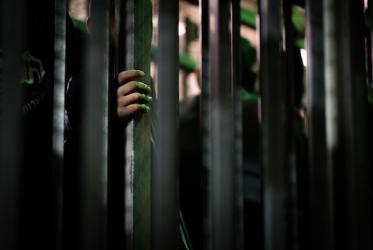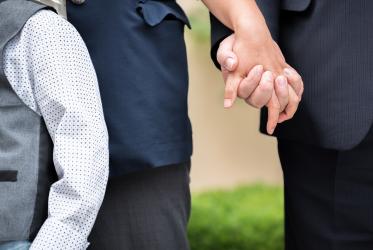Displaying 1 - 20 of 22
Churches should use their voice on climate change
26 February 2020
WCC pressing ahead with disarmament work
28 August 2019
WCC statement welcomes hopeful turn in Korea
20 June 2018
WCC congratulates Nobel Peace Prize laureate ICAN
06 October 2017
At UN, anti-nuclear majorities challenge nuclear-dependent minority
05 November 2015
Momentum builds for ban on nuclear weapons
16 December 2014







